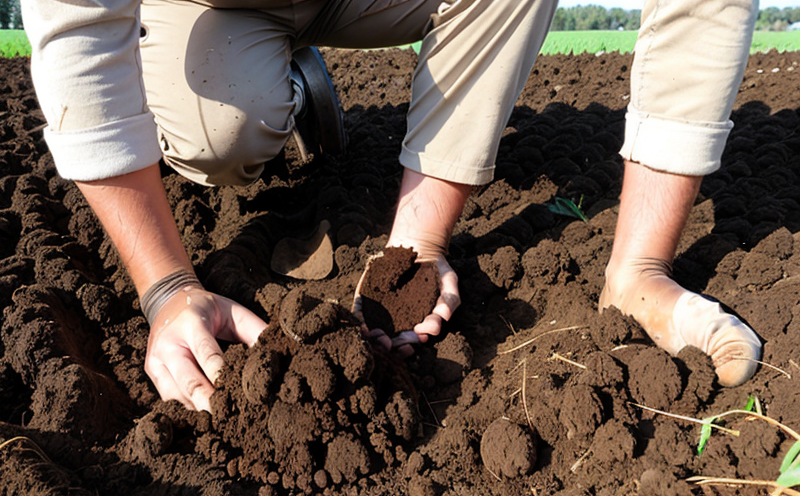Soil Pollution Load Index Testing
The Soil Pollution Load Index (SPLI) testing is a critical analytical procedure designed to evaluate and quantify the cumulative impact of pollutants on soil. This test provides valuable insights into the overall quality of soil, which is essential for maintaining environmental sustainability in agriculture and forestry sectors. The SPLI helps in assessing the extent to which soil has been contaminated by pollutants such as heavy metals, pesticides, and other hazardous substances.
The testing process involves collecting soil samples from various points within a designated area, followed by thorough analysis using advanced spectroscopic techniques like Inductively Coupled Plasma Mass Spectrometry (ICP-MS) or Atomic Absorption Spectroscopy (AAS). These methods ensure precise measurement of pollutant concentrations. The results are then used to calculate the SPLI value, which indicates the level of pollution present.
The primary purpose of this service is to support regulatory compliance and ensure product safety in agriculture and forestry operations. By identifying polluted areas early on, stakeholders can take corrective measures such as remediation or implementing alternative farming practices. Additionally, it aids in assessing the effectiveness of implemented mitigation strategies over time.
Understanding SPLI values also plays a crucial role in decision-making processes related to land use planning, particularly when evaluating potential sites for new agricultural projects or reforestation efforts. It allows stakeholders to make informed decisions about which lands are suitable for cultivation and which require special care due to their contaminated status.
The importance of accurate SPLI testing cannot be overstated; it serves as a key indicator in monitoring environmental health, ensuring food safety standards are met, and supporting sustainable agricultural practices globally. As such, reliable laboratories equipped with state-of-the-art instrumentation play an indispensable role in providing trustworthy results.
Industry Applications
SPLI testing finds application across multiple industries where soil quality is a critical factor:
- Agriculture: To ensure crop yields are not compromised by toxic elements present in the soil;
- Fuel Production: For assessing the impact of contaminated sites on fuel sources and ensuring safe extraction methods;
- Forestry: To identify potential risks associated with industrial activities near forested areas;
- Environmental Protection Authorities: For enforcing regulations regarding permissible limits of contaminants in soils.
| Industry Sector | Specific Application |
|---|---|
| Agriculture | Determining suitability for organic farming certification |
| Fuel Production | Evaluating the need for soil remediation before extraction |
| Forestry | Assessing impacts from nearby industrial developments |
| Environmental Protection Authorities | Enforcing compliance with national and international standards |
In each of these sectors, accurate SPLI testing is vital for maintaining ecological balance while promoting sustainable practices.
Eurolab Advantages
At Eurolab, we offer comprehensive Soil Pollution Load Index Testing services tailored specifically to meet the needs of our clients across various industries. Our expertise lies in providing precise and reliable results through a combination of advanced analytical techniques, stringent quality control measures, and experienced personnel.
- Innovative Techniques: Utilizing cutting-edge technologies like ICP-MS ensures high accuracy levels;
- Comprehensive Reporting: Delivering detailed reports that include both numerical values and graphical representations for easier interpretation;
- Client Collaboration: Working closely with clients from conception to completion of projects, ensuring all requirements are met.
Our commitment to excellence is reflected in our consistently high standard results. By choosing Eurolab for your SPLI testing needs, you can trust that you receive not just laboratory data but actionable insights designed to drive informed decisions.
International Acceptance and Recognition
SPLI testing has gained significant recognition worldwide as a robust method for assessing soil contamination. This service is widely accepted by international bodies including the European Union (EU), United States Environmental Protection Agency (US EPA), and various other national standards organizations.
- European Regulations: Compliance with EU directives such as Directive 2004/35/EC on Soil Quality;
- United States Standards: Adherence to US EPA criteria for evaluating soil contamination levels;
- ISO Standards: Certification against ISO 17025, ensuring laboratory practices meet international benchmarks.
The acceptance of SPLI testing by these organizations underscores its reliability and relevance in global contexts. As a result, it is increasingly becoming an integral part of environmental management plans worldwide.





